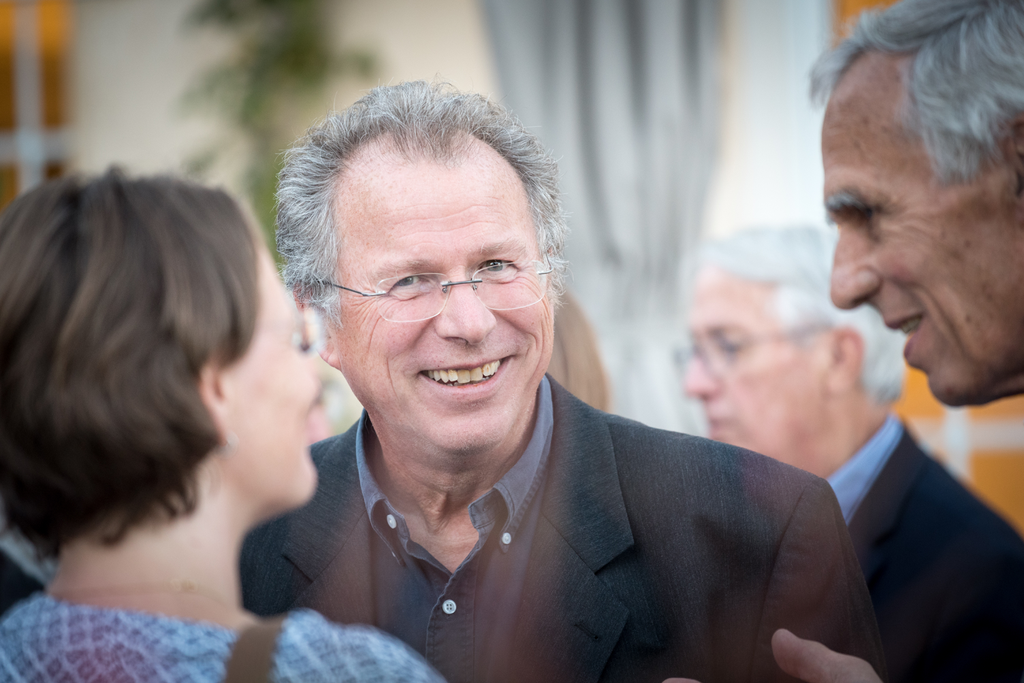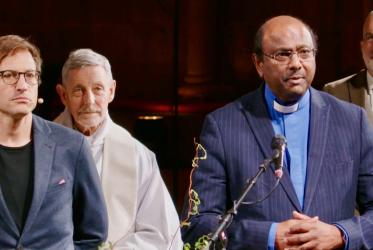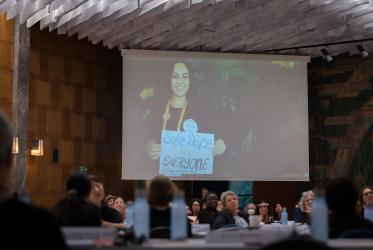By Rhoda Mphande*
Rev. Dr Martin Robra has been a key contributor to the ecumenical movement for the last 25 years, working for the World Council of Churches (WCC).
Robra is a theologian and ordained pastor who served as programme executive for the WCC for Ecumenical Continuing Formation, Roman Catholic relations, the joint inter-faith project with the International Labour Organisation Advancing Peace through social justice and support for the Pilgrimage of Justice and Peace.
WCC Communication asked Robra to reflect on his years of service to the WCC fellowship.
Q. You have contributed a lot to the WCC’s Pilgrimage of Justice and Peace. Can you describe your own pilgrimage during these 25 years of work for WCC?
Robra: Before coming to Geneva, I worked on a study on diakonia and koinonia for the WCC, reflecting on the diaconal dimension of the fellowship of churches in the WCC. The process was accompanied by an international study group whose members contributed to the reflections. This is how I learned to appreciate and cherish the diversity of contexts and theological traditions moving together with a common focus on the good news of the gospel of Christ. It prepared me for my involvement in the ecclesiology and ethics study, a joint project of Faith and Order and the Justice, Peace, Creation team.
My learning curve was steep with another study process on the 10 Affirmations of the World Convocation on Justice, Peace and the Integrity of Creation in 1990 in Seoul: The Theology of Life. The study process involved 23 case studies all over the world. This has been my main inspiration for the following years working on climate change, moving towards the water network, exploring a vision of the ecumenical movement in the 21st century, and contributing to the Pilgrimage of Justice and Peace after the 2013 Busan assembly.
Q. During your time at WCC, what have been the main highlights and remarkable moments?
Robra: These have been very rich years of my life. I met so many inspiring and motivating people, true witnesses of the gospel in their contexts and worldwide. I was especially glad to meet young people, many of them working on study projects on the ecumenical movement, and then to see how they develop and grow into new responsibilities in their churches, the academic world and the ecumenical movement. This is the reason why I liked to teach also in the Ecumenical Institute Bossey. There were also moments of encounter with victims of injustice and war that have deeply moved me and influenced my faith and how I worship and pray.
Q. Can you comment on how the ecumenical movement has changed over the years and where you think it is heading?
Robra: From a movement centered on national and regional councils of churches and the WCC, the ecumenical movement has become a poly-centric network of many different actors. There has always been the danger of fragmentation or competition between different actors. Since the Busan assembly, it has become more and more clear that the visible unity of the churches as a goal needs to be translated into a process of growing together and of the mutual sharing of gifts. The deepening of the fellowship goes together with common witness for justice and peace in the world. The member churches of the WCC need to walk together with the worldwide Roman Catholic Church that represents half of world Christianity on the one hand and the many Pentecostal, neo-Pentecostal and charismatic churches on the other - not centering on themselves or their own benefit, but for the future of life for humankind and all living beings.
Q. What do you plan to do next?
Robra: I am trying to reach out to young people in an inter-generational dialogue. I trust that it is very promising to build up together energy and movement on the way of justice and peace as ambassadors of Christ whose love - as we believe - moves, reconciles and unites the world. We can learn so much from young people and their initiatives such as Fridays for Future. Young people today are the first generation experiencing climate change and the last to take decisive action to limit it. The older generation can encourage them not to give up when they encounter the first difficulties, but to go on with commitment for people and earth, with joy, and love for life.
At a farewell celebration for Robra, WCC general secretary Rev. Dr Olav Fykse Tveit expressed that “I thought this day would never come because Martin has always been a part of WCC.” Tveit continued to reflect that “Martin is someone who has been a model of a good colleague as he is always ready to support others, relating well with others and being able to contribute wisely to what others do”.
In his closing speech, filled with emotion, Robra expressed his reflective gratitude to God, his church, to the council and to his wife Barbara Siebel-Robra, for his transforming and adventurous ecumenical journey, while opening the door to his home for the larger ecumenical family to continue the Pilgrimage of Justice and Peace together, even after his retirement.

Rev. Dr Martin Robra and wife Barbara Siebel-Robra. Photo: Ivars Kupcis/WCC
Robra confessed that “deep in my heart everything is about theology and the God of life. We need to dare to speak of this present God in our lives. Be daring theologically!” Robra added that, “I simply give back to you what I have received within this wonderful ecumenical and global family.”

Photo: Ivars Kupcis/WCC
* Rhoda Mphande, working as Communication Project and Finance Assistant, WCC Communication





